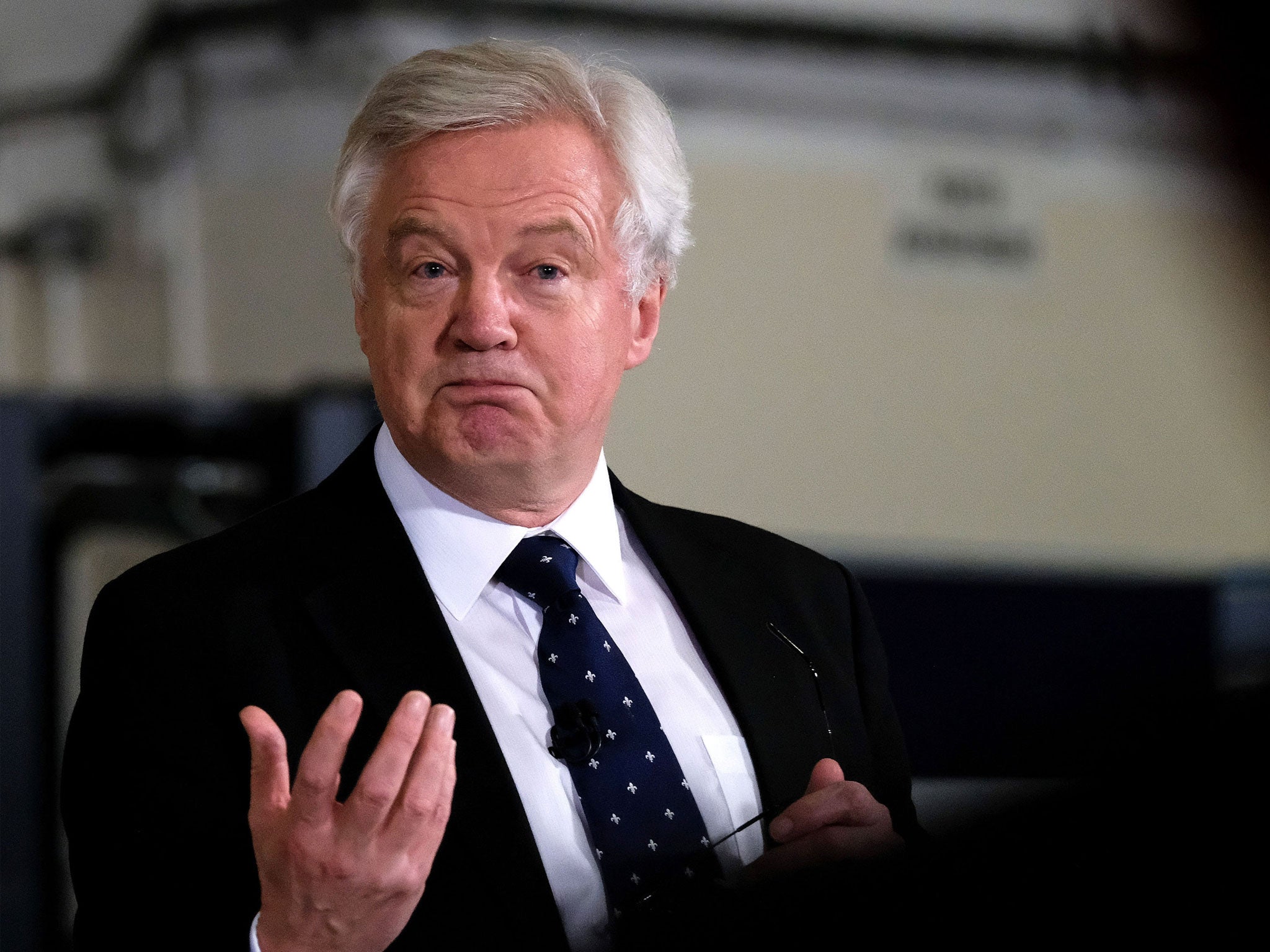Why I’m helping to take David Davis to court over Brexit
Having voted Leave, I can categorically state that this legal challenge is not about frustrating the ‘will of the people’ through undemocratic means. It’s simply that it’s more democratic to make decisions with more information than less

Eloise Todd of Best For Britain, Mike Butcher of TechForUK, and myself from Our Future, Our Choice! (OFOC!) are taking David Davis to court. Our case, if successful, might lead to significant changes in the Brexit debate – and not just because it might finally force David Davis to read some papers.
The issue at hand is the European Union Act 2011: a classic Cameroon concession to his unruly Eurosceptic backbenchers. The Act ensured that any powers transferred from Parliament to Brussels would require a referendum before being approved. In what might prove to be one of the great unintended consequences of history, this concession now lies as an inconvenient pothole on the Government’s “Road to Brexit”.
The European Union Act 2011 concerns itself with anything that “amends or replaces” the existing EU treaties we are a party to. The Government’s Withdrawal Deal falls within the scope of the European Union Act – it is a new treaty “replacing” the current set of treaties we have with the EU. It sets out to replace old rights and obligations with new rights and obligations.
Section 4 of the European Union Act details that any treaty which gives any EU institution the ability to “impose a requirement or obligation on the United Kingdom” must be approved via referenda. Of course, the Government’s Withdrawal Agreement does just this.
During the transition period that the Withdrawal Deal entails, we will be, in the words of Jacob Rees Mogg, a “vassal state” – a rule-taker. The EU will be free to impose a whole array of obligations and requirements on the United Kingdom. If they agree a new car regulation, we’ll be required to adopt it.
This situation is likely to extend beyond the transition period; “managing” regulatory divergence will presumably involve, in several sectors, not diverging at all. We will be powerless in such a situation, having lost our vote in the Council, and our ability to bring an action to the ECJ.
The European Union Act thus dictates that the Government’s Withdrawal Agreement must be approved by the people.
It is true that the Government can avoid all this by simply repealing the European Union Act. Indeed, that is precisely what they are trying to do. But there is a good chance they will fail. Why would the sensible Tories allow their Brexiteer brethren to be held to any standard different to the one that the Brexiteers themselves were cheering for and demanding in 2011?
The Labour party is similarly unlikely to legitimise such rank hypocrisy. And in the House of Lords, it is the fired-up, campaigner-in-chief Lord Adonis who has already tabled an amendment preventing the repeal of the European Union Act 2011. If such an amendment, and our legal challenge, succeeds, then the public will have the right to review the terms of withdrawal – as they should.
Having voted Leave, I can categorically state that this legal challenge is not about frustrating the “will of the people” through undemocratic means. It’s not even about holding the Brexiteers to their own standards – hilarious (and rare) though that may be. It’s simply that it’s more democratic to make decisions with more information than less.
The Government has spent 18 months endlessly arguing about Brexit, and still doesn’t know what it means. How an earth could the people have known what it meant 18 months ago?
I may have voted Leave, but I did not vote to put the people of Northern Ireland and Ireland into great difficulty, nor to give up control over our own regulations for an indefinite period, nor to make the worst regions of our country much poorer. I don’t think anyone did.
Yet it’s now clear that May’s Withdrawal Deal will do all those things. The people should have the opportunity whatever the Prime Minister comes back with, which will define this country’s future, and set out Brexit in its clearest possible terms.
We would be betraying future generations if we took this crucial decision on the basis of less information than we now have.
Will Dry is co-president of OFOC!

Join our commenting forum
Join thought-provoking conversations, follow other Independent readers and see their replies